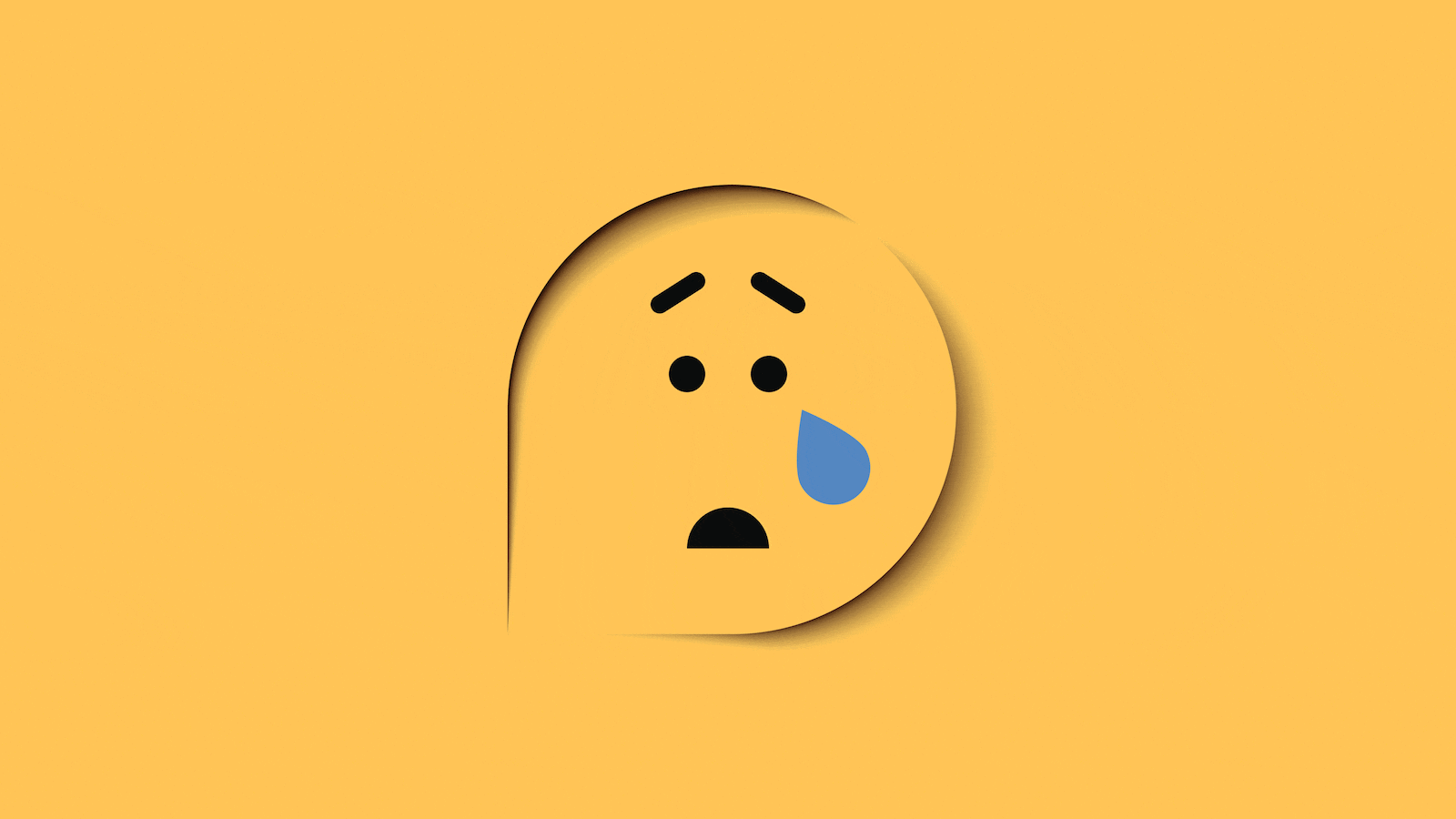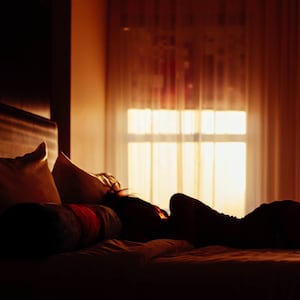When the novel coronavirus lockdown first began in early March, Grace Weinstein noticed something strange. In the span of 48 hours, three people reached out to her because they’d experienced an anxiety or panic attack. Weinstein has a diagnosed panic disorder, in addition to anxiety and depression—so for her newly distressed friends, she was an obvious person to consult.
But Weinstein herself has not had even one panic attack since the quarantines started. In fact, she’s been doing pretty well—so much so that she’s become a stabilizer for those around her.
“It’s suddenly becoming like a steady pace throughout this,” Weinstein told The Daily Beast during a recent phone interview. “Where people can come and [say], ‘I’m freaking out. I don’t know why you’re not freaking out, but please tell me what to do and how to get to where you are.’”
“To some degree I feel like I'm conditioned for this,” Weinstein said, “based on things I've experienced in the past.”
As COVID-19, the disease caused by the new coronavirus, has spread around the globe, many people have found themselves struggling to cope, regardless of their mental health histories. And to be clear, many if not most depression and anxiety patients have seen their symptoms worsen. But a fraction have, paradoxically, actually felt their symptoms alleviate. Like Weinstein, I am one of those people.
It’s not that I’m unaware of the terrible toll the global pandemic is exacting. I’ve cried about it late at night, like I imagine most have. I’ve worried for my grandmother, and boiled with rage as various wealthy blowhards suggested that the best thing she and other elderly people could do for this country is to die. I’m furious at the gross incompetence and indifference to human life within our country’s leadership. I check the news often—too often—staring at my phone in disbelief every night into the early hours of the morning.
And yet, when I wake up, I don’t feel as sluggish as I normally do. I find it easier to get out of bed. The intrusive thoughts that normally buzz around my brain like flies on a feeding frenzy have disappeared. My family is healthy, I tell myself. I am healthy. We are all doing what we can. And for whatever reason, that has been enough. My mood has stabilized after years of oscillating between paralyzing anxiety and debilitating, at times suicidal, depression. Despite everything, I realize, I am OK. More OK than I have been in years.
That’s a strange thing to admit. But evidently I’m not alone.

Grace Weinstein has a panic disorder, but friends and family are turning to her for advice on how to cope.
Courtesy Grace WeinsteinElizabeth Cohen, who has practiced psychology for 15 years with a specialty in anxiety, estimates that 20 percent of her clients have actually seen their symptoms alleviate in recent weeks. Roughly the same portion have seen their symptoms worsen, she says, while the remainder have seen little change. Elizabeth Visceglia, a psychiatrist who has practiced for 16 years (and, full disclosure, is the wife of our editor-in-chief Noah Shachtman), has not seen such a substantial number of her clients’ symptoms alleviate amid the outbreak—only one out of 20 she’d seen during the week of our interview fell into that category. But both offered several possible reasons that a person with a history of depression and anxiety might find some relief at a time like this.
A big part of anxiety, Cohen pointed out, is the anticipation of the unknown—worry about something bad that will inevitably happen. With the outbreak, she said, “a lot of people are saying, ‘The terrible thing happened.’ So in a lot of ways you’re not in the anticipating state.”
Ironically enough, another factor that might be helping some people with depression and anxiety cope during this crisis is a habit that, in normal life, we try to avoid. Many people who experience depression and anxiety find themselves separating from their immediate situations, either intentionally or unintentionally—a mental process called dissociation. A person might, for instance, focus intensely at work before coming home to disappear into a TV show or endlessly scroll through Instagram.
“That’s not great when we’re in our lives because that means you’re missing a lot of your life,” Cohen said. “However. Right now... if you’re a master dissociater, you’re going to be in a better place... You have, basically, a toolbox of how not to have to deal with all the scary feelings.”
Visceglia offered another theory, regarding her own client who has seen his symptoms lift. “My sense was that finally everyone else has a taste of what his inner world has been like,” she said. Seeing his inner state mirrored by the outside world, Visceglia posits, helped shut down self-critical thought patterns and offered some relief.
“The part of us that's judging and comparing us to everything and everyone around us is so exhausting—and especially, I think, for people that are feeling disconnected,” Visceglia said. “That people are openly and actively struggling with loneliness and isolation... For someone that’s been feeling that in a crowd already, it can be kind of validating.”
For Weinstein, who works as an audience developer for The Recount, it’s also helped to work in news—both because she has access to accurate information and because it helped get the coronavirus on her radar early. Her father works in China, often in Wuhan, and told her earlier this year that he believes he, too, had the virus in December and has since recovered. So Weinstein had a head start on most people when it came to grappling with the severity of this pandemic.
More than anything, though, Weinstein believes that her history with anxiety—and the tools she’s learned in therapy—have made coping easier.
“I'm used to being in a room alone with my thoughts for an extended period of time,” Weinstein said, adding that under quarantine, “You kind of run through the gamut of, ‘OK what if I'm not out of here in 20 days; what if I'm not out of here in 40 days; what if I'm not out here in 60 days? What will happen to me?” Due to her history of depression and anxiety, Weinstein is also used to, as she put it, “shrinking away from life” for a period of time.
“These are thought processes I am used to having and welcome—and know how to cut off in a kind, loving way after they've been around a little too long,” Weinstein said.
Coincidentally, Weinstein found herself in a particularly vulnerable position going into quarantine: Her boyfriend of eight months had broken up with her just three days before. The mandate for everyone to hunker down shattered all of the plans she’d laid to distract herself from the emotional turmoil, but wound up providing an opportunity for introspection. The pandemic itself also provided some perspective; in the midst of a global pandemic, the break-up felt less earth-shattering.
Freelance film critic Juan Barquín, who has a history of clinical depression, has also found a new sense of calm. “I haven't been depressed in a while,” they said. “I haven’t cried in a while. I had one night, maybe, throughout the entire experience.”
Barquín, like Weinstein, has mostly been trying to make the best of the current situation. Being an introvert has helped, as has embracing digital spaces as places to build community.
For example: “I had an event planned for a poetry festival here in Miami, and it was going to be this big thing where I was going to be showing a bunch of queer erotic short films from the ’60s, ’70s, ’80s, and today,” Barquín said. “It got canceled, unfortunately, due to the virus, but at the same time it's like, ‘OK, well, I’m stuck indoors now—what else do I have now but time? I'm going to show these movies online.’” And so, on a Friday night, they streamed the films for whoever cared to tune in.
Film and television have become a source of solace for many, including Barquín, who is currently mulling a Monk re-watch. (“Tony Shalhoub,” they note, “is a very calming presence.”) Another source of comfort has been Nintendo’s recently released Animal Crossing, to which many have flocked as a way to go outside without going outside.
It’s also been a relief, Barquín said, to take a break from having to perform in certain spaces—particularly at the office during their day job. “I’ve been wearing whatever I want because there's no level of professionality that matters anymore,” they said. “Like, yeah, I have my nails painted; doesn't matter. I wore a nice kimono the other day; didn’t matter. I wore overalls the other day. I think one coworker joked about me being a farmer and I was like, ‘That's cool. I really don't care.’”
“Not having those expectations of what you have to do on a regular basis is just so refreshing by comparison to having all those established norms,” Barquín said, before adding that there are certainly limitations. More than anything, Barquín emphasized gratitude for having the stability of a day job, which affords a steady income and health insurance.
Still, it can be jarring to experience newfound calm at such a devastating time. As Weinstein put it, “I sit back at the end of the day sometimes, like, 'Should I feel guilty for feeling happy right now?... Is it bad of me?’” Rather than feel shame, however, Weinstein, too, has embraced gratitude for the things and people in her life that have allowed her to feel comforted.
When I broached the topic of guilt and shame over feeling good—both with Cohen and Visceglia and, during several sessions, with my own therapist—all three encouraged me to embrace the personal insights this time has provided. The key, it seems, will be carrying this sense of connection and gratitude into the future.
“I’ve been talking to my patients all week about the invisible spider’s web that we’re all sitting on,” Visceglia said. “And when one part gets pushed, everybody feels it.”
She recalled living downtown in New York back in 2001 after the Sept. 11 terrorist attacks—another collective trauma that, despite the undeniable and unspeakable damage, yielded one of the most “beautiful” times she can recall as a New Yorker as everyone came together to pick up the pieces. This, too, will eventually give way to a period of rebuilding, she said.
“Maybe you're already reaping the fruit of it,” Visceglia said. “Maybe some of my patients are. But I think as a community we will, too. We just don’t know what it is yet.”


